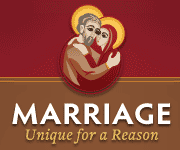Day One passes safely (Zenit's launching in Arabic for the occasion!). I credit the Knights of Columbus (that's twice I've mentioned them in 3 days), who are promoting this spiritual pilgrimage to Turkey and prayer for the Holy Father's safety. Actually, that link is the explanation, this is the prayer. You can watch the coverage on EWTN or Vatican TV, and open book is keeping good round-ups going.
What I find most interesting is that after months of making sure everyone knew he'd not be caught dead in the same room with the Pope (purely for scheduling reasons, mind you), the Turkish Prime Minister showed up at the airport to greet the Pope after all. Change of heart? Sleight of hand for security purposes? Make of it what you will. Perhaps it has to do with the claim that Sunday's protests against the Pope "boomeranged," merely increasing the Turkish people's interest in the trip.
John Allen has a good summary of the speeches, and he takes my line, making a comparison between what Benedict says to the Turks and what JPthe G said to the Commies. Read it. While the press is emphasizing the "delicacy" of the mission and B16's alleged "conciliatory tone" (I guess common courtesy is now considered apologetic), he nonetheless got straight to the point --preaching about religious liberty, "reciprocity," and telling religious scholars flat out that religions ought not seek direct political power. As everyone hastens to point out, separation of Church & State is a foreign concept in Islam, so it strikes me as bold --even in a secular Muslim country-- to lead with that. The speeches themselves are short.
To the President of Turkey's Office of Religious Affairs:
I would like to quote some words addressed by Pope Gregory VII in 1076 to a Muslim prince in North Africa who had acted with great benevolence towards the Christians under his jurisdiction. Pope Gregory spoke of the particular charity that Christians and Muslims owe to one another “because we believe in one God, albeit in a different manner, and because we praise him and worship him every day as the Creator and Ruler of the world.”Freedom of religion, institutionally guaranteed and effectively respected in practice, both for individuals and communities, constitutes for all believers the necessary condition for their loyal contribution to the building up of society, in an attitude of authentic service, especially towards the most vulnerable and the poor.Speech to Diplomatic Corps: before I get to the good stuff, I feel compelled to note this paragraph might fruitfully have been addressed to the Iraq Study Group:
More than forty years ago, the Second Vatican Council wrote that “Peace is more than the absence of war: it cannot be reduced to the maintenance of a balance of power between opposing forces … but it is the fruit of the right ordering of things with which the divine founder has invested human society and which must be brought about by humanity in its thirst for an ever more perfect reign of justice” (Gaudium et Spes, 78).Here's the red meat, which packs a whollop into a paragraph:
During the last century, she acquired the means to become a great modern State, notably by the choice of a secular regime, with a clear distinction between civil society and religion, each of which was to be autonomous in its proper domain while respecting the sphere of the other. The fact that the majority of the population of this country is Muslim is a significant element in the life of society, which the State cannot fail to take into account, yet the Turkish Constitution recognizes every citizen’s right to freedom of worship and freedom of conscience. The civil authorities of every democratic country are duty bound to guarantee the effective freedom of all believers and to permit them to organize freely the life of their religious communities. Naturally it is my hope that believers, whichever religious community they belong to, will continue to benefit from these rights, since I am certain that religious liberty is a fundamental expression of human liberty and that the active presence of religions in society is a source of progress and enrichment for all. This assumes, of course, that religions do not seek to exercise direct political power, as that is not their province, and it also assumes that they utterly refuse to sanction recourse to violence as a legitimate expression of religion.That's like saying to the Mullahs: Dudes, you're way out of line. But of course, he's always more eloquent because he's a genius.


